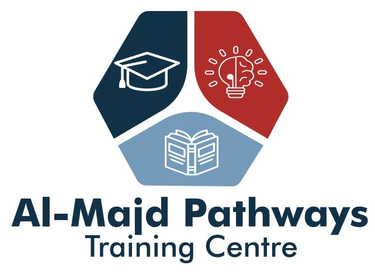
Petroleum Production Operations
£12850.00
INTRODUCTION
Petroleum Production Operations play a pivotal role in the upstream oil and gas sector. The industry increasingly emphasises selecting the most effective well design and equipment to maximise oil and gas recovery efficiently and cost-effectively. Production engineering's essence lies in ensuring the continuous flow and economic viability of oil and gas wells through monitoring and evaluating their production and efficiency.
This training course covers the fundamental concepts of the oil and gas production cycle. It commences with a revision of Reservoir Engineering fundamentals, exploring methods to predict production performance. It then delves into the impact of well completion on production and focuses on common operations and well interventions.
Participants attending this training course will develop the following competencies:
Understanding historical production practices and the latest technological advancements to maximise oil and gas production and overall resource recovery.
Applying a logical approach to acquire safe, cost-effective, integrated analytical skills for defining and managing oil and gas operations.
Gaining practical skills to guide participants in making informed, prudent, and technically sound decisions regarding oil and gas operations.
TRAINING OBJECTIVES
The objectives of APC's Petroleum Production Operations training course include:
Familiarising participants with petroleum production operations.
Cultivating empathy for the industry's challenges related to production operations.
Developing the vocabulary and understanding of roles necessary for facilitating discussions with other professionals on production operations.
WHO SHOULD ATTEND?
APC's Petroleum Production Operations training course is suitable for a broad range of professionals, with a particular focus on:
Petroleum and Reservoir Engineers
Drilling and Completion Engineers
Production Operations and Facilities Staff
Geologists
Field Technicians
Field Supervisors and Managers
Service Company Engineers and Managers
Engineers commencing work assignments in production engineering and operations
Engineers seeking a well-rounded foundation in production engineering.
TRAINING APPROACH
The training course employs a combination of presentations and instructor-guided interactive discussions among participants. Practical exercises are integrated to ensure a comprehensive understanding of the concepts. Animations and video materials are utilized to illustrate the operation of various downhole tools. Case studies stimulate discussions and provide maximum benefit to participants during the formal presentation sessions.
TRAINING OUTLINE
Day 1: How Reservoir Properties Affect Production
Overview of Production Engineering
Geology and Production
Rock Properties
Fluid Properties
Reservoir Driving Mechanisms
Reserves
Geological model
Day 2: Optimisation of Well Production System by Nodal Analysis Technique
Well testing methods
Well deliverability nodal analysis (inflow/outflow)
Tubing performance
Flow through chokes
Modelling
Day 3: Completion Design
Upper Completion
Casing string and suspension
Cementing operations
Tubing selection
Wellheads and Xmas trees
Safety valves
Multilaterals
Lower Completion
Introduction to sand control
Gravel pack design
Perforations design and applications
Day 4: Selection and Design of Artificial Lift
ESPs
Gas lift
PCPs
Beam pumps
Hydraulic pumps
Pumps/Compressors: centrifugal, positive displacement, rotary, reciprocating, ejectors
Day 5: Production Operations
Formation damage and methods of well stimulation
Matrix acidizing
Hydraulic fracturing
Corrosion control
Scale deposition, removal, and prevention
Acid gas treatment: coatings, closed system, chemicals, solvents, conversion; stress cracking
Well intervention: Wireline, hydraulic workover units, and coiled tubing
Surface facilities
Properties of fluids at the surface
Oil – water- gas – solids – contaminants
Flowlines, piping, gathering systems; solids and liquid limits
Storage tanks, gun barrels, pressure/vacuum relief, and flame arrestors
Integrated surface production system; separation and treatment (multi-phase separators, management of produced and waste waters, gas processing)
Stabilisers
Removal of foams, emulsions, paraffins, asphaltenes, hydrates, and salts
Water management: SP packs, plate interceptors, gas floatation, coalescers, hydrocyclones, and membranes
Certificate of Completion: Upon successful completion of the course, participants will receive a Certificate of Completion from Al-Majd Pathways Centre (APC).
Get in touch with us today.
Follow
Sign-up for our newsletter
0044 7466410010
©2025 All rights reserved.
